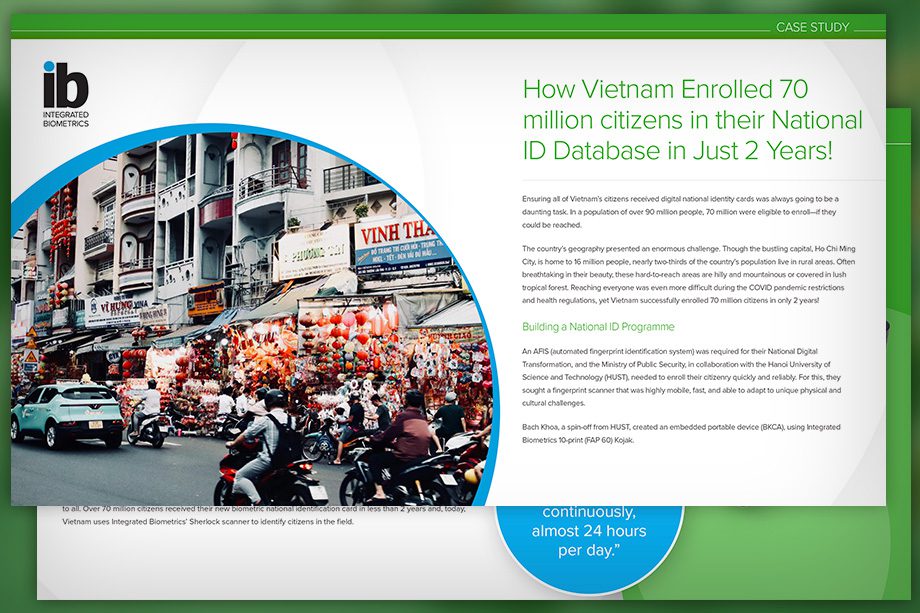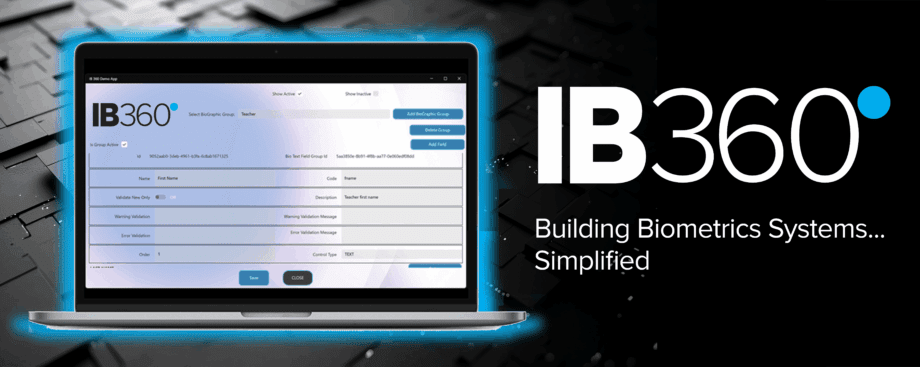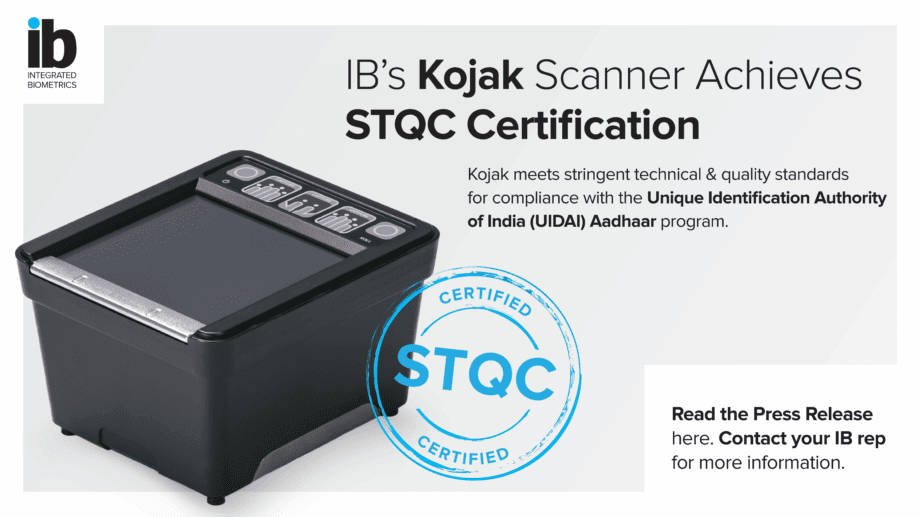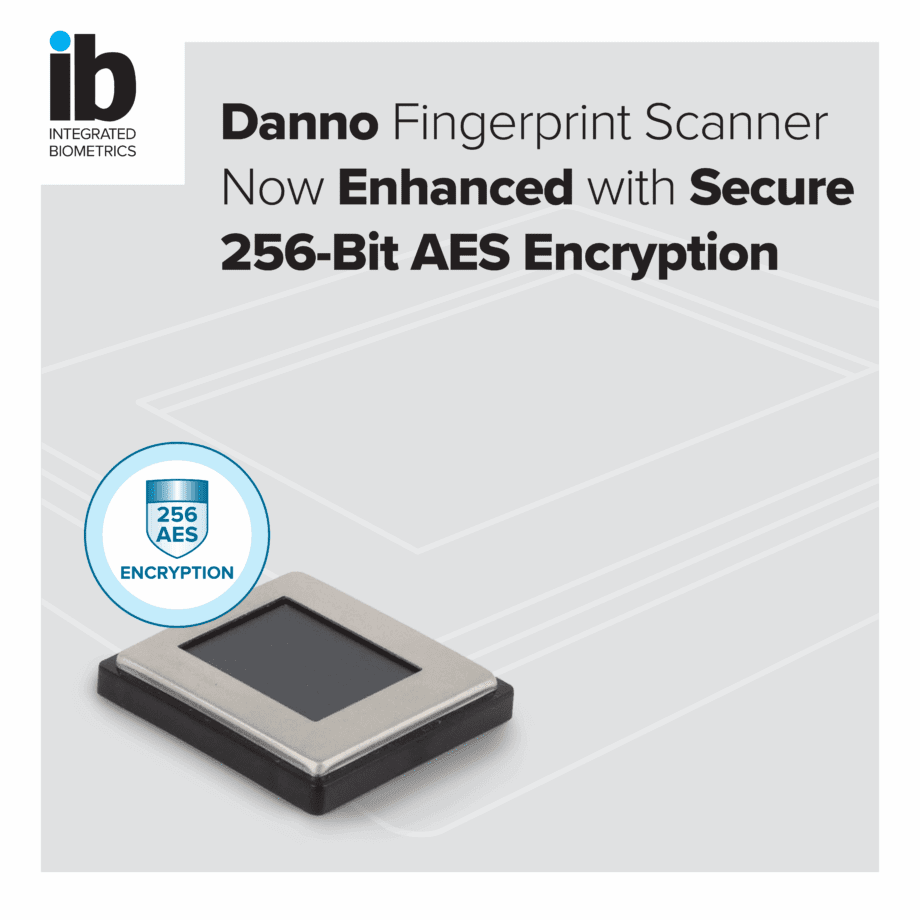Download the Article here.
Ensuring all of Vietnam’s citizens received digital national identity cards was always going to be a daunting task. In a population of over 90 million people, 70 million were eligible to enroll—if they could be reached.
The country’s geography presented an enormous challenge. Though the bustling capital, Ho Chi Ming City, is home to 16 million people, nearly two-thirds of the country’s population live in rural areas. Often breathtaking in their beauty, these hard-to-reach areas are hilly and mountainous or covered in lush tropical forest. Reaching everyone was even more difficult during the COVID pandemic restrictions and health regulations, yet Vietnam successfully enrolled 70 million citizens in only 2 years!
Building a National ID Programme
An AFIS (automated fingerprint identification system) was required for their National Digital Transformation, and the Ministry of Public Security, in collaboration with the Hanoi University of Science and Technology (HUST), needed to enroll their citizenry quickly and reliably. For this, they sought a fingerprint scanner that was highly mobile, fast, and able to adapt to unique physical and cultural challenges.
Bach Khoa, a spin-off from HUST, created an embedded portable device (BKCA), using Integrated Biometrics 10-print (FAP 60) Kojak.
Why Kojak?
Faced with the task of enrolling over 16 million people per month to meet the project’s ambitious timeline Bach Khoa had a demanding list of requirements for the scanner.
To instill confidence among the population, the scanner needed to meet international standards and work well with large databases. FBI-certified Kojak offered the peace of mind of a proven solution already in use worldwide. Kojak’s image quality and security features, including iBeta certification of precision attack detection (PAD), met the project’s strict security requirements.
Mobility and Cultural Adaptation
To succeed, the scanner needed to be easily transported and work well in remote areas. Weighing only 725 grams (1.6 lbs) Kojak, embedded in the BKCA unit, offered a lightweight solution with low power consumption. BKCA’s ease of use by the operator and citizen allowed rapid, continuous enrollment.
Working closely, Bach Khoa and IB were able to overcome some unexpected challenges to successful print capture in the field. These included the cultural practice of very long fingernails, among both men and women, and arthritic fingers that could not fully extend. The presence of extra fingers (polydactyly) or fused digits (syndactyly) among the population deviated from the expected finger segmentation pattern, creating a unique problem.
During the campaign, the scanner worked continuously, almost 24 hours per day.
However, the Bach Khoa-IB team quickly adapted the proprietary SDK to ensure national identification was available to all. Over 70 million citizens received their new biometric national identification card in less than 2 years and, today, Vietnam uses Integrated Biometrics’ Sherlock scanner to identify citizens in the field.
About Integrated Biometrics
Integrated Biometrics (IB) is a global leader in advanced biometric technology. Renowned for revolutionizing fingerprint scanning through its proprietary, FBI-certified Light Emitting Sensor (LES) technology, the company delivers cutting-edge fingerprint scanners, seamless biometric system integration software, contactless fingerprint capture, and comprehensive identity management beginning with infant identification solutions.
Trusted by organizations worldwide, Integrated Biometrics serves critical sectors such as law enforcement, military, election validation, financial services, and national identity programs. Its robust, high-performance products enable fast and accurate enrollment, identification, and verification, even in remote and extreme environments. IB continues to redefine the possibilities of biometrics—Impacting Lives Through Identity.




